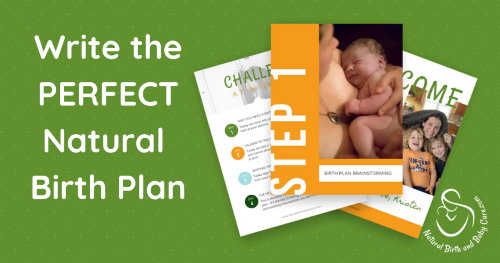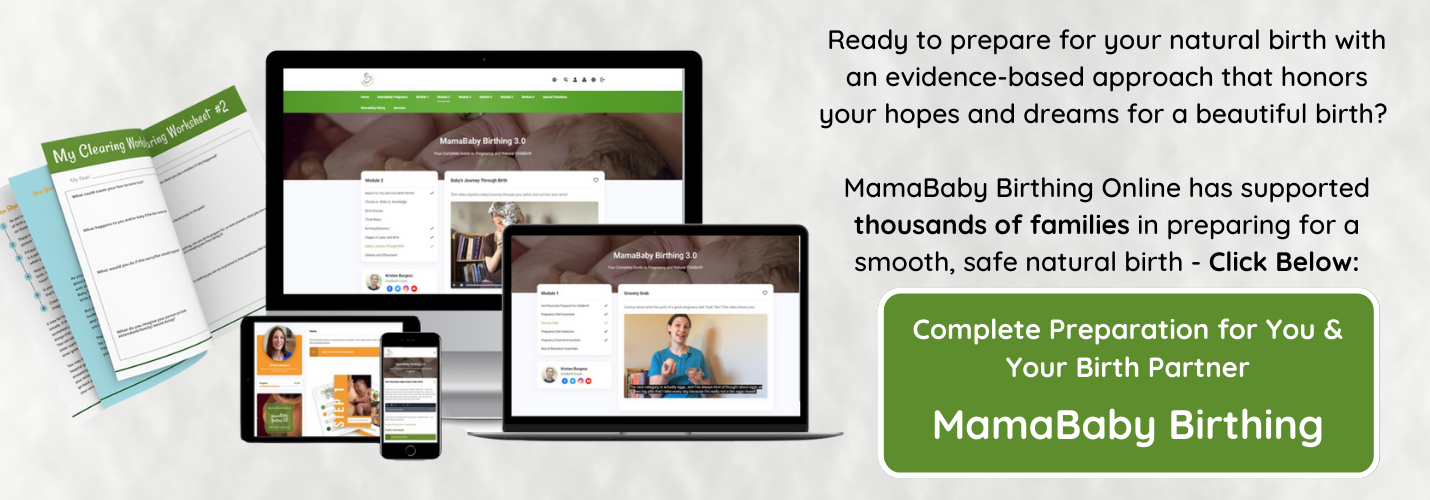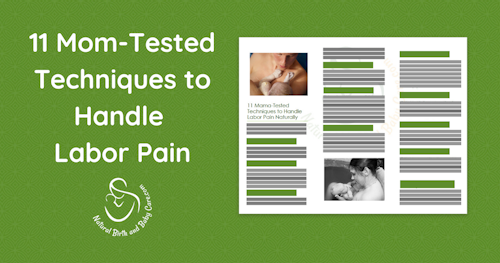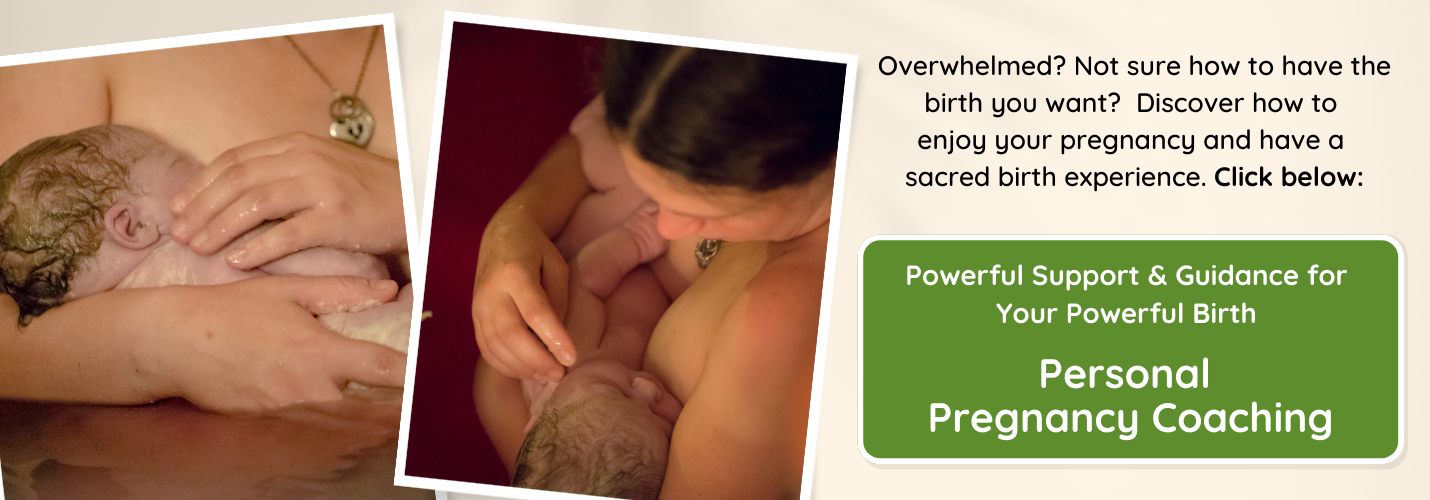Pregnancy is amazing, but it can also be overwhelming for autistic moms. Increased sensory sensitivities, self-care and pregnancy diet, managing appointments, and handling social and emotional issues can all present big challenges.
Understanding these challenges paired with planning can help you enjoy your pregnancy and give your baby a great start.
Sensory Challenges for Pregnant Autistic Moms
Most women experience some sensory changes during pregnancy, especially with taste and smell.
Autistic pregnant women may notice these changes more intensely. Other sensitivities often develop (or get more intense), such as to touch, light, and sound.
Taste:
Want personal support to stay healthy and low-risk through your pregnancy? Longing for authentic guidance to make your sacred birth dream a reality?
Click to book a pregnancy and birth visioning call with me. We’ll talk about your hopes and dreams and explore if my pregnancy coaching program is a good fit for you.
Touch:
Smell:
While most pregnant women notice an enhanced sense of smell, it may be even more challenging to neurodiverse mamas-to-be. Here are some hints:
Light:
Light is one of the most-cited sensitivities in studies about pregnant women on the spectrum. Given the number of doctor’s visits and with some mamas choosing a hospital birth, light is a big deal! Here are suggestions that can help:
Sound:
(NOTE: Want a Perfect Birth Plan Template? Use this template and step-by-step videos to write a birth plan that gets your birth team on your side for a beautiful birth experience! Get the birth plan kit here.)
Diet and the Autistic Pregnant Woman
Pregnancy nutrition is the #1 way to grow a healthy baby and stay low-risk throughout your pregnancy and birth. It’s difficult if you’ve got food aversions or eat on a limited range of foods, however.
Protein is critical to your baby and to prevent complications like preeclampsia. For autistic moms-to-be who do not eat many protein foods, it’s worth it to find at least 1-2 high-protein foods you can eat.
Greek yogurt may be a good option. Other proteins to consider are:
Here are some other tips to help you manage your pregnancy diet:
Structuring Your Meals
Autistic individuals often need routine, and pregnancy is a time when sticking to a structured meal plan can help ensure you’re getting the nutrients you need.
Dealing with Sugar Cravings
Cravings are common during pregnancy. Protein and other healthy foods are fine to indulge in, but you want to watch how much sugar you get (including from fruit and from carbohydrates like bread and pasta).
Navigating Emotional and Social Challenges
Pregnancy is a time of shifting roles in your family and community. It’s also a time when who you are and how you see yourself changes. The extra attention, shift in self-perception, and disruption to routines can be a real challenge for autistic women.
Here are some tips to navigate through this time:
Managing Anxiety and Stress
Pregnancy can increase anxiety levels, especially with all the changes happening in your body and life.
A Note About Baby Care
You might worry about caring for your baby as an autistic mama, but many autistic women feel like their newborns and young babies are really an extension of themselves (that’s why I call my childbirth class “MamaBaby Birthing” – the mamababy is a real thing!).
Babies are also soothed by many of the things that may sooth you. For example, most of my babies liked being held and gently bounced up and down on a birth ball (exercise ball). Babies like rocking in a rocking chair!
I also put my older babies in an Ergobaby carrier and rocked back and forth with them there, which put them to sleep and soothed me. I wrote a lot of the information on this site while rocking my babies back and forth in a carrier on my back
Baby care activities like nursing, diaper changes, elimination communication (if you choose to do it), etc. will all quickly become routine. You do them a lot, so you’ll feel very comfortable, very fast.
Looking for a natural childbirth course that’s evidence-based AND focused on honoring your intution and power during your birthing time?
Click here for details on MamaBaby Birthing, my complete online birthing course. Used by thousands of birthing families, you’ll be completely prepared for a beautiful, safe, and confident birth experience.
Handling Social Interactions
Pregnancies usually get public attention and involve community rituals you may find challenging (like baby showers).
People asking you questions about the pregnancy are common:
You don’t have to give a lot of details, or even answer if you don’t want to.
People may also want to touch your belly, or may touch your belly without asking first! Most pregnant women don’t like this, but it’s even more distressing for an autistic mama.
(NOTE: Want a Perfect Birth Plan Template? Use this template and step-by-step videos to write a birth plan that gets your birth team on your side for a beautiful birth experience! Get the birth plan kit here.)
Childbirth Preparation as an Autistic Pregnant Woman
Labor and birth are full of physical sensations and the possibility of sensory overwhelm. Good choices and preparation beforehand can help.
See my post on choosing a care provider for your autistic pregnancy to help with deciding who to have at your birth (and where to give birth).
As a mama who chose natural birth, I believe that women can prepare and give birth without needing labor medications. Preparation and practice make a difference, as well as feeling like your body is strong and doing what it’s supposed to do.
These things can be a challenge for any mama, and especially for an autistic mama, so if you feel you need pain medication, that’s an option to explore.
As I noted in the first article in this autistic pregnancy series, an advantage of a birth center or home birth is much greater control over the environment and your experience – so you weight the pros and cons with what you need as a neurodiverse woman.
Here are tips to help with the sensory challenges that labor and birth may bring.
(NOTE:Want Labor Pain Techniques that REALLY Work? Get these 11 mom-tested techniques for handling contractions from start to finish Get the mom-tested natural labor techniques here.)
Postpartum Sensory Care:
Postpartum can feel uncomfortable in the first few days. Your healing body, breastfeeding, milk coming in, and getting to know your baby bring a wide range of sensory experiences.
This is a personal opinion, but newborn babies smell heavenly, so you might find you really enjoy cuddling and soaking in your newborn’s scent!
It can feel overwhelming with all of these changes, however. Lots of time skin-to-skin with your baby, making sure your needs are met, will really help.
I felt exhausted and uncomfortable after my third baby’s birth. I was overwhelmed and didn’t want to touch my baby. My midwife was very sensitive and helped get the room to a cooler temperature. She got me comfortable in bed and swaddled up my baby so he could cuddle close beside me without too much direct touch. After a nap with her watching over both of us, I felt much better and was ready for skin-to-skin contact with him.
In general, I’ve found skin-to-skin contact with my newborns to feel very good. Just remember it’s okay to go at your own pace, and to take a break if you need to. Even neurotypical moms can feel “touched out” at times.
As I noted above, babies are generally soothed by many of the same things you’re soothed by. Dim lighting, warm, quiet areas, etc. will help them.
Have people to help you, make you nourishing foods you love, keep the house clean, and assist with breastfeeding and newborn questions. Investing in a postpartum doula is a great idea to get this holistic support.
Finding Support and Building a Community
Pregnancy can feel lonely, and even more so if you’re neurodiverse and feel like nobody understands your experiences. It’s possible to find support, even the 1:1 support that’s so helpful for autistic people:
As a pregnancy coach, I work with women worldwide, and we talk regularly via Zoom, phone, and texting. This lets me provide daily support and help guide you through any situation – social, nutrition, or just answering all your pregnancy and baby questions! Click here to discover more about how I can support you!
The next post in this series will cover more on handling day-to-day life and stressful situations when you’re neurodiverse and pregnant 
Want personal support to stay healthy and low-risk through your pregnancy? Longing for authentic guidance to make your sacred birth dream a reality?
Click to book a pregnancy and birth visioning call with me. We’ll talk about your hopes and dreams and explore if my pregnancy coaching program is a good fit for you.
Trending Products

Child Playpen Play Pens for Infants and Toddlers Child Fence Child Play Yards for Indoor & Outside with Breathable Mesh Anti-Fall Playpen

hiccapop OmniBoost Journey Booster Seat with Tray for Child, Eating Desk, Tenting, Seashore, Grandma’s | Folding Transportable Tip-Free Design Straps to Kitchen Chairs

Aquaphor Child Therapeutic Ointment Superior Remedy Pores and skin Protectant for Chapped or Dry Pores and skin, Drool Rash and Diaper Rash Ointment, 14 Oz Jar

Thermometer for Adults and Youngsters, Quick Correct Child Thermometer with Fever Alarm & Mute Mode, FSA eligible, Lifetime Assist -Take Fast Temperature Simply

Hatch Relaxation Child Sound Machine, Night time Gentle | 2nd Gen | Sleep Coach, Time-to-Rise Alarm Clock, White Noise Soother, Music & Tales for Nursery, Toddler & Youngsters Bed room (Wi-Fi)

Child Grooming and Well being Package, Lictin 15 in 1 Security Care Set, New child Nursery Well being Care Set with Hair Brush,Comb,Nail Clippers and Extra for New child Toddler Toddlers Child Boys Women

Fisher-Worth Moveable Child Chair Sit-Me-Up Ground Seat with Developmental Toys & Machine Washable Seat Pad, Rainbow Sprinkles

Bébé Bottoms Child Diaper Rash Cream Spray, No-Rub Contact Free Utility for Delicate Pores and skin (50 ml)












